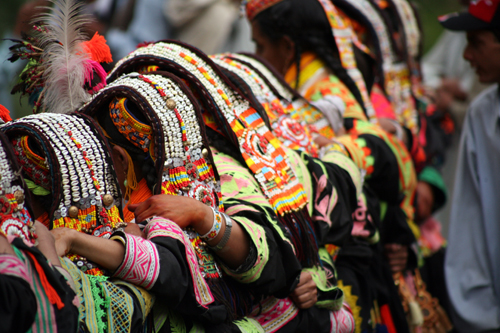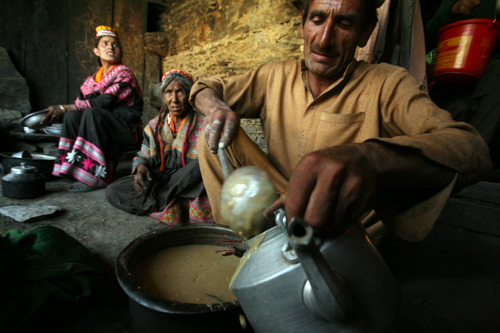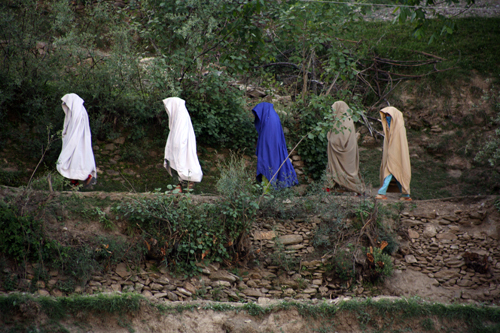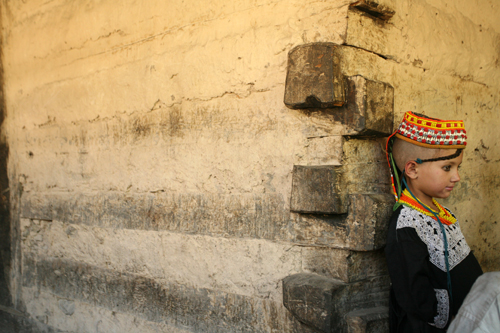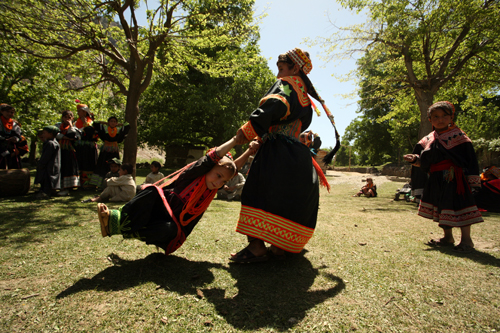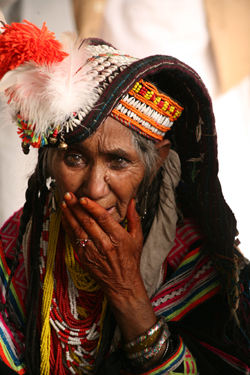It is Joshi, the spring festival of the Kalash tribe in isolated northeastern Pakistan. Celebrating rebirth, the festival is being performed under a heavy police presence at a time of rising tensions between the 3,000 remaining Kalash and their Muslim neighbors, among which are several missionaries who believe that the conversion of the polytheistic tribe is Allah’s work.
Using financial and religious incentives equally, the missionaries have set up tens of madrassahs in the three mountain valleys inhabited by the Kalash. A Greek NGO active in the area seeks to teach the Kalash — a people scorned by their Muslim neighbors for generations as heathens — self-respect and confidence in who they are. Its director, Athanassis Lerounis, estimates that conversions have dropped from five a month in the 1990s, to one or two a year today.
Due to their light coloring and colored eyes as well as claims to be descended from the armies of Alexander the Great, the Kalash are a tourist draw. But poor tourist infrastructure, a volatile security situation, and the valleys’ proximity to Afghanistan’s al-Qaida-infested Nuristan Province are acting as strong disincentives to all but the most intrepid of travelers.
festival.
to serve his guests.
madrassah for afternoon classes. Barely pubescent, the girls are
instructed by the Muslim missionaries running these schools, often
with Gulf Arab funding, to completely cover themselves in the style
supported by the Taliban in neighboring Afghanistan.
out from under her traditional cap, a Kalash girl watches her elders bustle
about the household chores.
to play in a verdant meadow.
jewelery and colorful beads, watches proceedings behind henna-stained
hands.
Iason Athanasiadis is an analyst, writer and photographer. He recently left Iran after three years living in Tehran.

